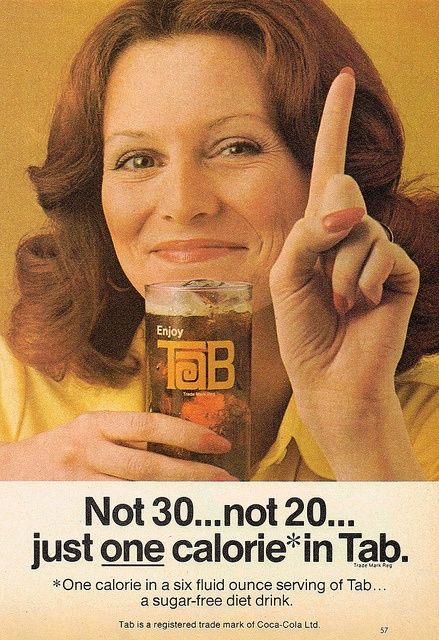We’ve probably all heard of calories, although not many of us have a real understanding of what they actually are.
We often place emphasis on how many calories we are consuming in our diet. We say things like, “I’m going to the gym to burn some calories” or, “I’m cutting down on my calories to lose weight.”
In reality, reducing our caloric intake may not help us lose weight at all, and counting calories in general is absolute nonsense. We’re pretty much wasting our time with it.
I always thought I knew what calories were although, before I became interested in health and nutrition, I also never paid much attention to them, nor did I think much about what I was putting into my body
When I began to re-examine my previously held beliefs about nutrition, I decided to look into calories and what I found was really surprising. Calories aren’t even a physical thing, they are just a measurement. The more I learned about calories the more I realized how many people, like me, have a completely upside-down view of what calories are.
What Calories Actually are and How they are Technically Calculated.
Many years ago, we determined calories counts in a much different way. Scientists placed food in a sealed container surrounded by water known as a Bomb Calorimeter. They then heated the water by electrically charging the container until all of the food was completely “burned up.” The resulting increase in water temperature indicated the amount of calories contained in the food.
So a calorie isn’t a physical thing, it’s simply a measure of the potential heat energy contained in a food item. As an example, let’s say that we place a big juicy cheeseburger in the Bomb Calorimeter and turn it on. If the temperature of the water rises by one degree celsius as a result, this would mean the burger contains one calorie.
But hold on, aren’t burgers supposed to contain a lot more calories than that? The answer is yes and the reason for this is that the calories we see on food labels are actually kcals (kilocalories), which means 1,000 kcals = one calorie. So by burning that delicious 1,000 calorie (actually 1,000 kcal) cheeseburger, the temperature of one kilogram of water would rise by one degrees celsius.
So how does this information serve us? The answer is that it doesn’t. It’s almost completely useless, and here are the top six reasons why:
1. Calorie counts have almost nothing to do with the nutritional content of the food.
Let’s look at zero calorie sodas as an example. These drinks legally contain no calories, however they contain artificial sweeteners, which have been linked to diabetes among a long list of other negative health effects.
We should rather be asking ourselves things like what minerals are contained in the food? Are there vitamins in the food? Are there any toxic chemicals or preservatives in the food which could potentially harm our bodies? The calorie count listed on the food label will not answer any of these questions, which is why we really should place much less emphasis on them.
This labeling of calories on food packaging distracts us from the only part of the label that actually matters: the ingredients section.
2. Calories are not an accurate metric for the amount of energy food provides to the body.
Let’s go back to the example of the 1,000 calorie cheeseburger. How would most of us feel after eating that cheeseburger? Would we be ready to go straight to the gym? Of course not! We would most likely be laying on the couch and experience a big dip in our energy levels.
So something containing a lot of potential heat energy—expressed as 1,000 calories—doesn’t necessarily give our body more immediate energy. At the same time, less calories do not convert to the food providing less immediate energy, as we can see when a child drinks a zero calorie sugary drink and is bounces off the walls on a sugar high.
Plainly and simply, there is a much smaller correlation than most people think between the calories in something and the amount of energy we garner from it.
3. Eating the daily recommended value for calories does not mean we will be healthy.
So, is there some kind of middle ground or optimal level of caloric intake, such as the general guideline of around 2,000 calories per day? The answer is no, because it depends where those calories are coming from.
If we are getting all or most of those 2,000 calories from processed foods or refined sugars, we will definitely experience negative long-term health consequences, even though we are consuming the recommended amount.
There are many different types of fats, carbohydrates and proteins, some of which have health benefits and some of which are harmful to our bodies. Calorie counting does not take these things into account.
4. Eating less calories does not necessarily help us lose weight.
Calories counts do not give us any useful information about the effects the things we consume will have on our body.
Calories are simply a measure of the potential energy, in terms of heat, contained in the food or drink. Again, it all depends on the source of the calories. There is no optimum level of calories. There are foods which work for our body, and there are foods that do not.
By choosing foods that our body wants and needs we will lose weight, if that is our intention, regardless of how many calories we are consuming. Always remember that our bodies are all different. A diet that works for one of us may not work for for another. There is no cookie-cutter approach to health or to losing weight, especially when it comes to something like calories.
5. Calorie counts may be completely inaccurate.
Calorie counts are no longer determined by burning food in a Bomb Calorimeter, as this would be too expensive and time consuming for food companies. Food companies now use averages to calculate the calories. Here is how it works:
1 gram of fat = 9 kcal
1 gram of protein = 4 kcal
1 gram of carbohydrates = 4 kcal
So if a food contains, for example, 5g of fat, 8g of protein and 9g of carbohydrates, the amount of calories listed on the label would be calculated as follows:
Calories from fat: 5g X 9 kcal = 45 kcal
Calories from protein: 8g X 4 kcal = 32 kcal
Calories from carbs: 9g X 4 kcal = 36 kcal
Total calories: 45 kcal + 32 kcal + 36 kcal = 113 kcal
So the calorie count of the food is never actually measured, it’s derived from averages and does not even take into account the vast array of proteins, carbs and fats, all of which have different levels of calories.
6. There is really no such thing as “burning calories.”
We can’t burn something that does not physically exist. Since a calorie is not a physical substance, saying we are burning calories makes no sense. What’s actually happening is that our body is breaking down proteins, carbs and fats into very small pieces so that those substances can be absorbed into the bloodstream and used by our cells for energy.
Different substances require different amounts of energy for our body to break them down. There is almost no correlation between how many calories something contains and how much energy our body needs to break that substance down into a usable form.
For example, there are many different types of proteins and each of these different types require different digestive processes in the body meaning they require different amounts of energy. Calorie counts on food labels usually simply list “protein”, and do not take into account the sources of those proteins.
It may be hard for some of us to accept that counting calories is pointless. We have been so conditioned by society to believe a lot of myths and nonsense about health and nutrition. When I first became interested in cultivating a healthier lifestyle I hardly knew anything about the topic. I used to eat 20 Medjool dates at a time–which are about the size of a lemon–and thought I was being healthy because I was eating natural sugars.
But my lack of knowledge ended up being my greatest strength. I was able to admit to myself, “I want to be healthy, but I have no idea how to go about it.” I was able to set my pride aside and as a result I learned quickly, kept an open mind and ruthlessly challenged my previously-held beliefs.
Once we admit to ourselves that we don’t know something, beautiful opportunities for learning and growth can emerge.
If we start focusing on eating a diet containing whole and natural foods, we will (most likely) naturally lose weight and have more energy. Forgetting about calories and looking into the actual ingredients contained in the foods we’re consuming is a much better use of our time and energy.
~
Author: John Miller
Image: Vintage Ad/ Pinterest
Editor: Khara-Jade Warren






Read 5 comments and reply